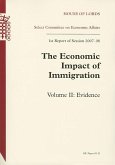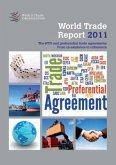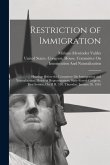Immigration has become highly significant to the UK economy: immigrants comprise 12% of the total workforce. The Committee found no evidence for the argument, made by the Government, business and others, that net immigration generates significant economic benefits for the existing UK population. The Committee criticizes use of GDP (gross domestic product) as a criterion for assessing the economic impacts of immigration on the UK. The total size of an economy is not an index of prosperity. The focus of analysis should be on the effects of immigration on income per head of the resident population, and theory and the available empirical evidence indicate that these effects are small. The economic impacts of immigration depend critically on the skills of immigrants. The Committee does not support the general claims that net immigration is indispensable to fill labor and skills shortages, and also questions the Government's claim that immigration has generated fiscal benefits. Rising population density has potentially important economic consequences for the resident population, including impacts on housing, as well as wider welfare effects, especially where immigrants are most concentrated. Immigration does exert a significant impact on the housing market in particular areas. Data on immigration and immigrants in the UK, and those leaving the country, are inadequate. The Committee recommends that the Government should: improve radically the immigration statistics; review immigration polices and explain the reasons and objectives; better enforce the minimum wage; clarify the objectives and implications of the new points-based immigration system; monitor immigration by publishing regularreports on the numbers and characteristics of immigrants; further consider which channels of
Hinweis: Dieser Artikel kann nur an eine deutsche Lieferadresse ausgeliefert werden.
Hinweis: Dieser Artikel kann nur an eine deutsche Lieferadresse ausgeliefert werden.







